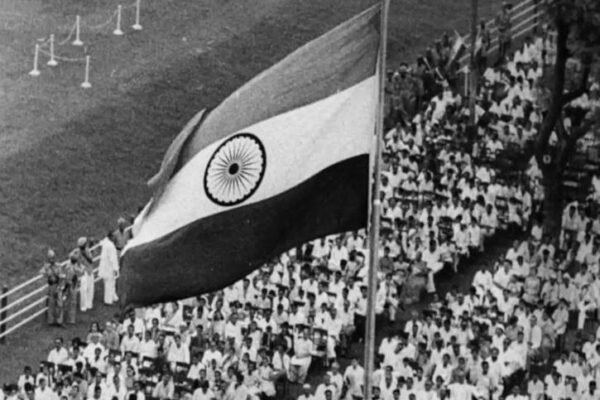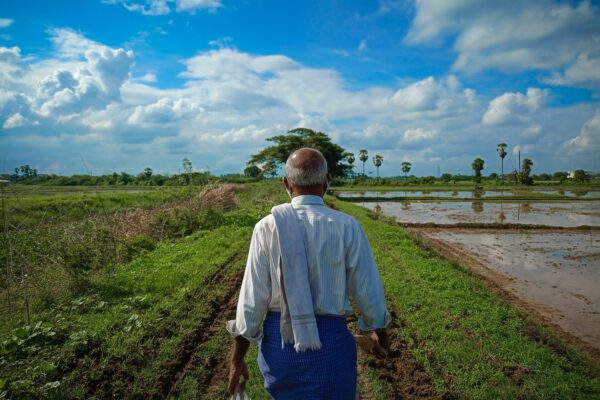This is the first time in the history of post-independence India where religion becomes pivotal to a legislation and is the basis for conferring citizenship.
This is the first time in the history of post-independence India where religion becomes pivotal to a legislation and is the basis for conferring citizenship.
The Citizenship (Amendment) Bill has sailed through both houses of Indian parliament last Wednesday, which comes as the latest onslaught on the secular credentials of the Indian democracy amongst a slew of successful legislative attempts under the ruling right-wing Bharatiya Janata Party headed by nationalist Modi, the Prime Minister of India, continue to plague the country.
The contentious Citizenship Amendment Bill, or the CAB, introduced by the Minister of Home Affairs of India and erstwhile president of the ruling Bharatiya Janata Party Amit Shah in the parliament, is discriminatory in nature and is intended to strip millions of Muslims in the country of citizenship and thereby rendering them stateless. The opposition parties, including the Indian National Congress, has firmed up their vociferous dissent against the bill and mala fide intention of the current ruling dispensation in the country that targets the largest minority community of the country, which constitutes 14.5 percent of the total population of the 1.3 billion populous of India.
The CAB at the outset is a gross violation of the fundamental rights of equal treatment without any discrimination on the basis of religion or cast, guaranteed in the Indian constitution. This is the first time in the history of post-independence India where religion becomes pivotal to a legislation and is the basis for conferring citizenship.
The CAB was passed by the government that enjoys a brutal majority in the lower house of the parliament while it depends on its allies to get bills passed through in the upper house of the parliament, and is primarily about the options for naturalization of non-Muslim “illegal migrants” residing in India before 2014, who might have fled ‘religious persecution’ from either Pakistan, Bangladesh, or Afghanistan. This bill is the first step towards ousting those migrated Muslims to India through its open border with Bangladesh pre and post 1947, the year India became a sovereign republic and got divided in to India and Pakistan, after the process of renewal of National Citizen Registry (NRC) on a pan-India level.
A couple of months back the process of renewing the NRC was carried out under the direct supervision of the apex court of India in the northeastern state of Assam, which has most migrant refugees from Bangladesh starting from the end of 19th century, and resulted in publishing the list of 1.9 million “illegal migrants” (most of them Bengali Hindus and Muslims) who are not entitled for Indian citizenship. By enacting CAB, the Indian government looks for accommodating those excluded Hindus from the list while stripping the Muslims of the citizenship. Once the NRC renewal process is applied to all states, next in the row of bills to be introduced in the parliament by the government is for all those who are omitted, except for Muslims, from the citizenship list. The Home Minister reiterated in the parliament that the process of renewal for the National Registry of Citizenship will be taking place across the country by the end of 2024.
The opposition parties of India in unison rejected this bill, citing the legal incompetency and the ill intent of the government to send those who ‘failed’ the National Registry of Citizenship to the detention centers after rendering them stateless. While the Home Minister claims that the CAB seeks to accommodate religiously persecuted minorities of the neighboring countries who have reached in India before 2014, it doesn’t include either the Tamils of Sri Lanka or the Muslims of Myanmar and Nepal, or the Christians of Bhutan. These are the major religious minorities in the neighboring countries of India who are allegedly persecuted by its majority people. Thus the bill lacks the logic and comprehension.
The opposition parties and in its front the Indian Union Muslim League suggested amendments to the proposed legislation, seeking the removal of the name of minority communities from the bill and to make it inclusive for all, but failed miserably to convince the ruling party.
The abrogation of Article 370 of Indian constitution that provided autonomy to the erstwhile state of Jammu and Kashmir in the previous session of the parliament wreaked havoc and the entire Kashmir valley, the lone state in Indian where Muslims constitute the majority of the inhabitants, still continues under a complete shutdown. The people there voluntarily observe civil disobedience in protest against the revoking of Article 370, and subsequent security measurements are currently still set by the military and local authorities.
In the penultimate session of the parliament, the government introduced a bill that criminalized instantaneous triple talaq of Muslim husbands of their wives, making the civil offence a criminal offence and there by invoking a jail term of 3 years.
The media, the fourth pillar of democracy apart from legislature, executive and judiciary, dutifully repeat the government lines and mysteriously abstain from highlighting the shortcomings of the legislation or the brunt people have to bear due to the lack of prudence and deft policy crafting.
The Indian Constitution begins with: “We, the people of India, having solemnly resolved to constitute India into a sovereign socialist secular democratic republic and to secure to all its citizens: JUSTICE, social, economic and political; LIBERTY of thought, expression, belief, faith and worship; EQUALITY of status and of opportunity; and to promote among them all FRATERNITY assuring the dignity of the individual and the unity and integrity of the Nation”, and sees the people of India as its master.
This is high time the secular values enshrined in the Indian constitution are protected and safeguarded from being misused to single out a community and cast them as outlawed. Given the fact that the political parties in India have already lost their high moral ground to stand up and defend the religious rights of minority Muslims, almost all major political parties are tom-tom about their Hindu predilection and busy appeasing the Hindu upper class communities in the country in order to secure safe vote banks in the elections.
Not to mention how religious polarization becomes central to all elections in India so much so that people are ready to sacrifice their long cherished wish for an open defecation free nation to their religious whims. The building of Ram Mandir at Ayodhya where Babri Masjid stood for almost 5 centuries topped among the issues discussed in almost all debates during the electioneering, despite the downward spiralling condition of the Indian economy that couldn’t find a lasting solution for finding its way out from the crisis it got in. The only hope remains is the collective wisdom of an already sidelined civil society to take the lead from the front and emerge as a new master of Indian constitution and fix the decaying state of affairs in the country.





